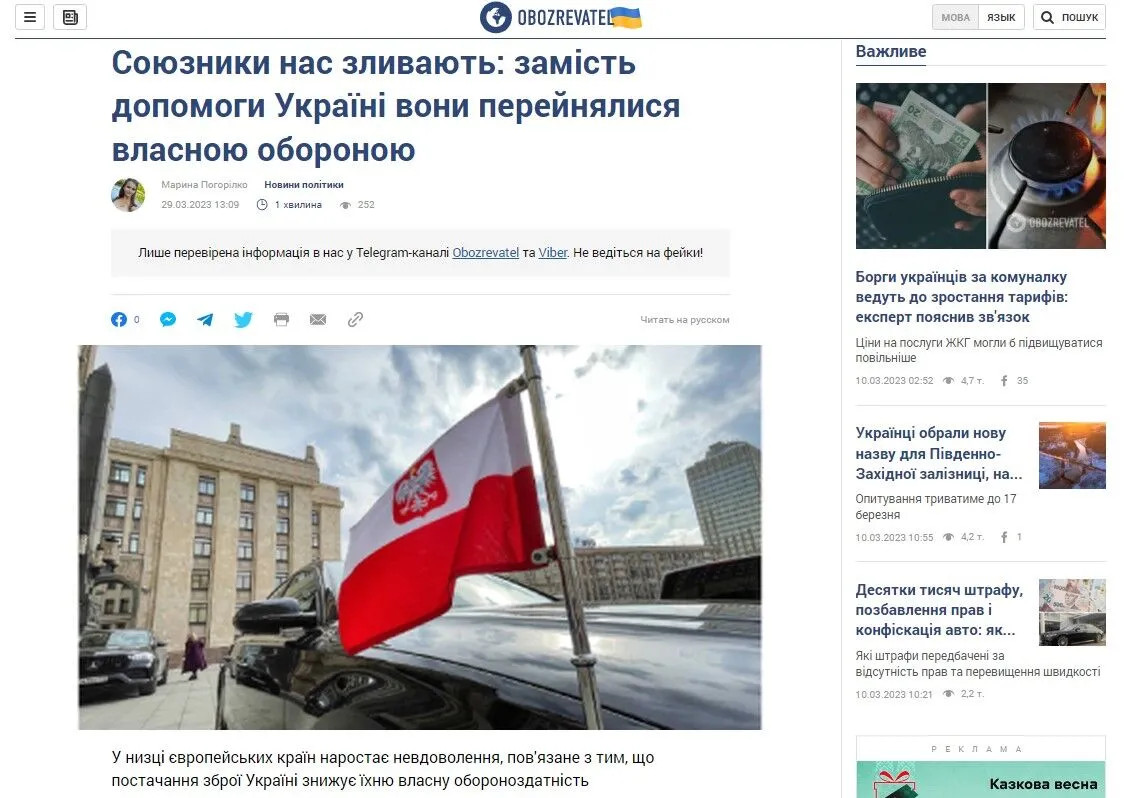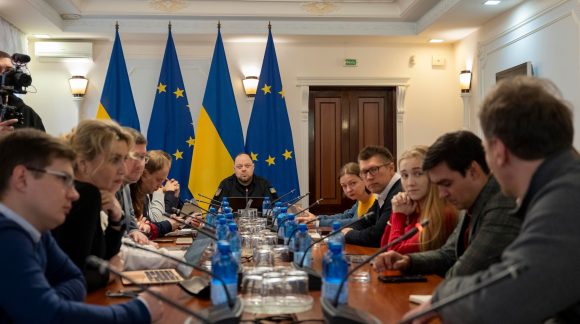Online media Obozrevatel reported a fake website that mimics the appearance of their website and spreads false news. The media asked the Security Service of Ukraine to take appropriate action.
Fake posts purportedly by the Obozrevatel are being promoted on Facebook via paid-for advertising feature.

Visually, the fake news pages are a perfect copy of the Obozrevatel website, copying the authors’s data as well, but the website address is different.

The fake page’s address

The Obozrevatel’s original page
The editors also point out that the difference lies in the “unintelligible presentation of information – typical for a Russian psyop, which comes specifically amidst the news about the UAF counteroffensive.”
“Propagandists want to sow disappointment among Ukrainians, often the readers cannot distinguish original pages from their mirror versions. We note that in an attempt at panicmongering and smearing the leadership of Ukraine and our Defense Forces, the scammers use paid-for social media advertising wherein you click on a bright image and it takes you to a mirror website of a media outlet,” the media writes.
As the editors note, if you click on the link on a different day from when it was “posted”, you can immediately see that the site has not been updating: “All the news on it are dated with the same day and were posted around the time when the scammers were ‘drawing up’ their fake.”
Also, false “reports” use blurred photos from the Internet which have nothing to do with the text of the fake articles. Such “articles” does not cite any sources, either.
Moreover, social media user Yuriy Konkevych noticed that the fakes are being spread on Facebook through paid advertising. He said that he has been encountering targeted advertising with the news about “our allies betraying us” while scrolling Facebook for several days. According to him, the scammers act in a classic manner: a funny caricature instead of a photo, a short text mentioning a Western publication and a link to the fake Obozrevatel page.

The editors have contacted the SBU, asking them to take appropriate action regarding the Russian psyop.
As the IMI reported, a fake website imitating the online publication “Ukrainian Pravda” has appeared on the Internet. The “Ukrainian Pravda” contacted the SBU with a request to address the spread of a fake column by the journalist, military officer Pavlo Kazarin, done by unknown persons through a fake website.
In March, 2023, the editors of RBC Ukraine filed a statement with the cyberpolice over website forgery and a fake article criticizing the UAF Commander-in-Chief, Valery Zaluzhny.
In September 2022, unknown persons created a copy of the Ternopil online resource “Poglyad” and of its Facebook page. And in Snigurivka town (Mykolaiv oblast), which had been under Russian occupation since March to November, the invaders were distributing a clone of the locally known newspaper “Ridne Prybuzhzhia”. The Russians used the layout, typeface, and name of the regional newspaper, having translated it into Russian – “Rodnoe Pribuzhye”.
In June 2022, the RBC-Ukraine reported that some criminals were posing as their editorial office to advertise a survey with which RBC-Ukraine had nothing to do on social media. Back then, the RBC-Ukraine contacted the National Police, the Security Service of Ukraine, and the Ministry of Digital Transformation regarding this issue.

